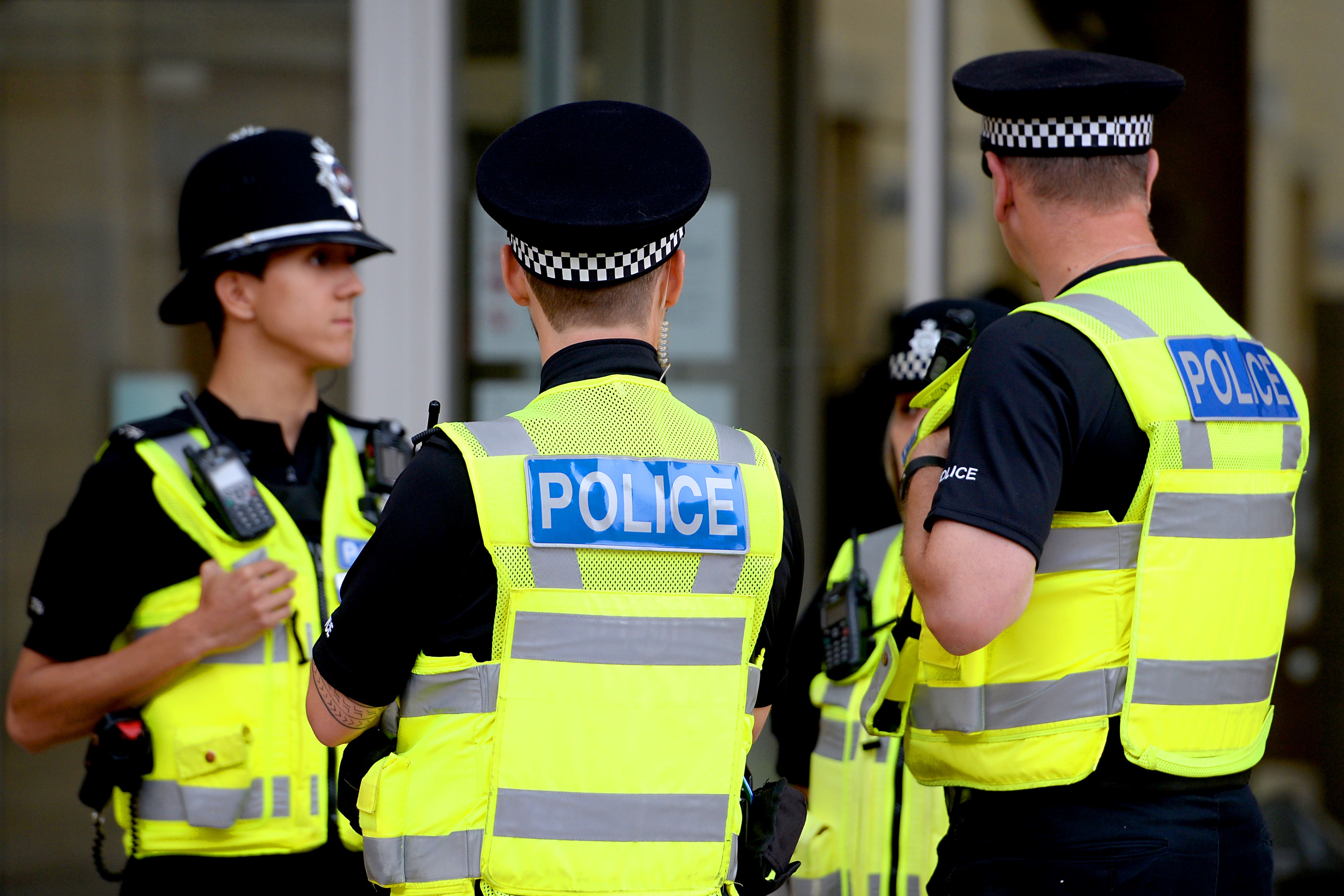‘Postcode lottery’ sees areas suffering most from crime face tax rise to fund police
Government says local commissioners can generate up to £350m of police funding by taking money from council tax

A “postcode lottery” is seeing areas suffering the most from crime facing tax rises to pay for local policing, the Police Federation has warned.
The government has announced an annual funding increase of “up to £523m” for local forces in England and Wales, but the figure relies on increases to council tax that could generate £349m.
Individual police and crime commissioners (PCCs) will have to decide whether to implement the rise, balancing the cost of living crisis with the growing demand on police who say they have become the “service of first and last resort” for struggling public services.
Police officers in the UK are legally barred from striking, and say they will be “picking up the pieces” from industrial action by sectors including nurses, ambulances and railway workers.
The Police Federation, which represents 130,000 rank-and-file officers, called the funding announcement “smoke and mirrors” and that even with the full increase, inflation meant that police were facing a real-terms pay cut.
Chair Steve Hartshorn said the plans “will see a council tax rise for many at a time when few can afford it”, adding: “This is also an incredibly unbalanced approach, akin to a postcode lottery.
“Those communities that are suffering most from crime are reliably less well-off and less able to afford any tax rise, so wealthier communities with lower crime rates will be charging more and having more available to policing, and areas in which significant investment in policing is needed most will see the least investment.”
With a record six police forces currently in special measures, Mr Hartshorn said more may follow as “exceptional officers” quit over pay and conditions.
The National Police Chiefs’ Council warned of “difficult decisions over service delivery” due to inflation and the level of demand on “stretched” forces.
Chief constable Paul Sandford, the deputy lead for finance, said: “The level of demand on policing remains high, with a substantial amount of non-crime demand, such as health and social work, that police are required to step into due to an absence of other service provision.”
The Police Superintendents’ Association said the planned funding amounted to a 4.7 per cent increase, compared to an inflation rate of almost 11 per cent.
President Paul Fotheringham said: “The result is that we will see already-stretched forces having to address the widening budget gaps they face, which will have inevitable impacts on staffing and service delivery.
“Demand is up, we’re continuing to pick up the pieces where other services withdraw, we’re likely to be called to fill in for striking public sector workers, and we’re managing the largest recruitment drive in a generation. It can’t therefore be right to see funding continue to drop in real terms.”
The government said its planned funding settlement would provide £17.2bn for police to tackle issues including serious violence and fraud, and to hit Boris Johnson’s target of recruiting 20,000 extra officers by March.
The home secretary, Suella Braverman, said: “It is vital that we continue to invest in the priorities that matter most to our communities, and we must do more to cut crime and restore confidence in our police.
“With over 15,000 additional officers already recruited and thousands more on the way, this package will support our forces to get the basics right and keep communities safe across the country.”
The funding settlement will now undergo official consultation.
A government spokesperson said it recognised the impact of increases in the cost of living on police officers and had implemented a recommended pay increase of £1,900 to all ranks from September onwards.
“Around two-thirds of funding for PCCs comes directly from government grants, with around a third coming from a share of council tax – known as the police precept,” a statement added.
“Our proposals amount to an increase of less than 30p per week for a typical Band D household in England, if PCCs use the full precept flexibility.”
Subscribe to Independent Premium to bookmark this article
Want to bookmark your favourite articles and stories to read or reference later? Start your Independent Premium subscription today.

Join our commenting forum
Join thought-provoking conversations, follow other Independent readers and see their replies